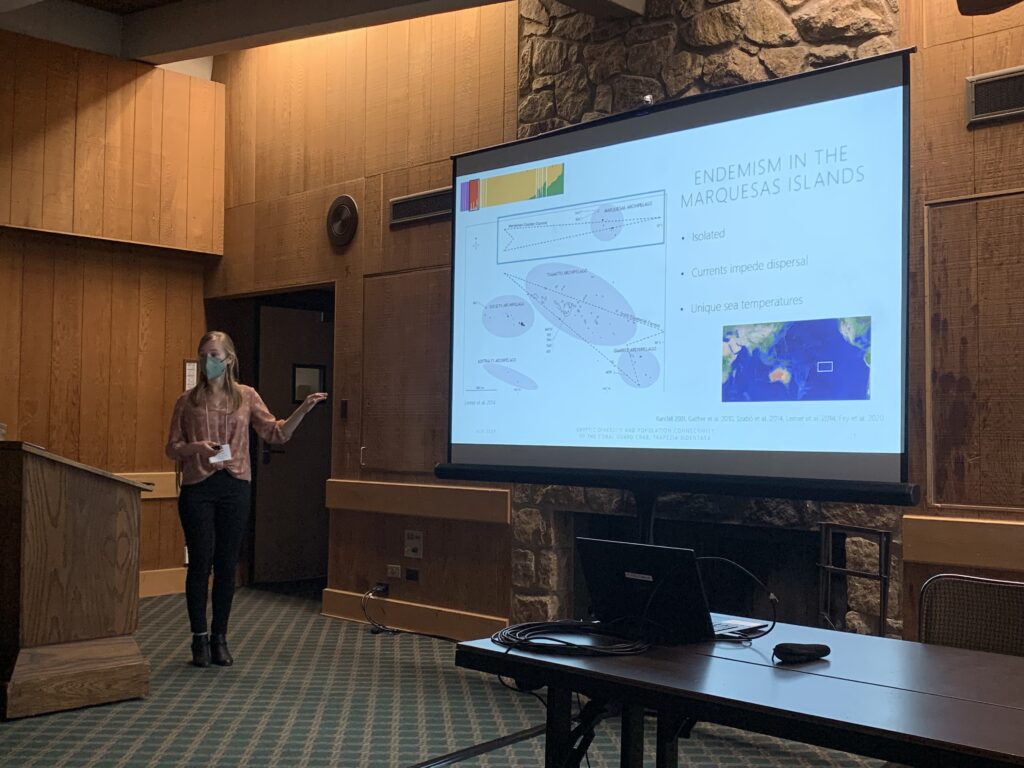
Kenzie Pollard, a University of Guam graduate biology student and Guam NSF EPSCoR Graduate Research Assistant, presented her research at the 2023 American Society of Naturalists Conference which was held from Jan. 6 – 10, 2023, in Pacific Grove, California.
The American Society of Naturalists is the oldest scientific society dedicated to the study of ecology, evolution, and behavior. The event was fully in-person and included researchers from physiology, phylogenetics, genetics, and other associated fields.
This year’s conference focused on what it means to be a naturalist and researcher in the 21st century.
During the event, Pollard presented her project, entitled, “Cryptic diversity and population connectivity of the coral guard crab, Trapezia bidentata.”
“It was my first time presenting a talk at an international conference and while I was nervous, it was exciting to share what I had spent the last few years on,” said Pollard. “I even had a professor from the University of Florida reach out to me to discuss my research and our shared interest in pocilloporid corals.”
According to Pollard, she appreciated being able to attend the talks held at the event.
“The conference itself was intriguing and packed full of interesting talks,” said Pollard. “The most impactful was the symposium on “Confronting the Legacy of Eugenics in EEB.” A necessary conversation, it raised the voices of underrepresented groups in STEM and focused on the history and impacts of eugenics as well as emphasizing what actions we may take to prevent the perpetuation of these ideologies.”
During the conference, Pollard was able to make new connections easily.
“I could meet somebody new at every meal, and coffee breaks between sessions were great opportunities to approach speakers and chat about their research,” said Pollard. “I was fortunate to attend the conference with colleagues from my undergrad and a prospective advisor for my Ph.D. They introduced me to several scientists in their network and it truly helped build my community.”


